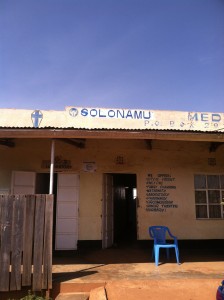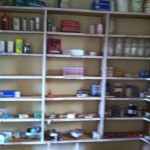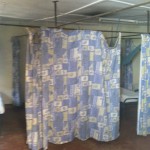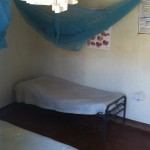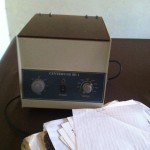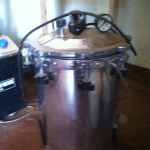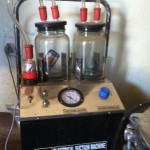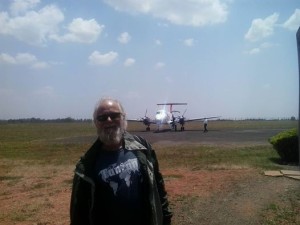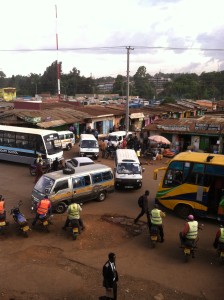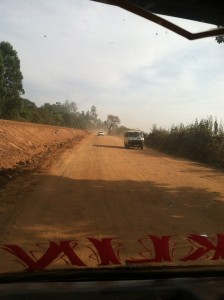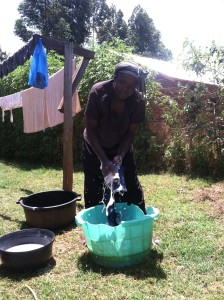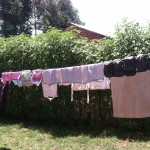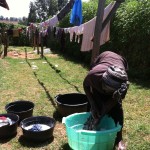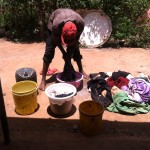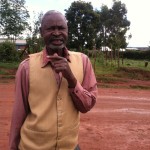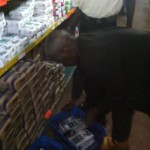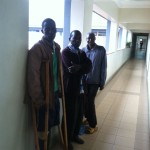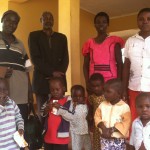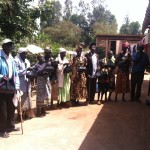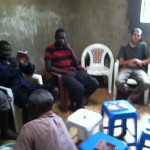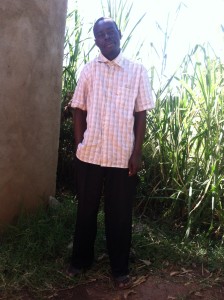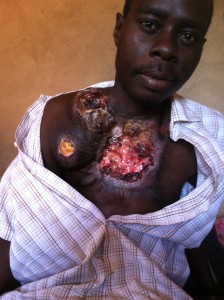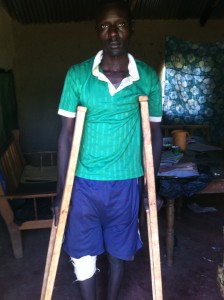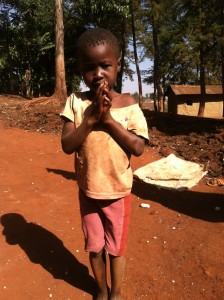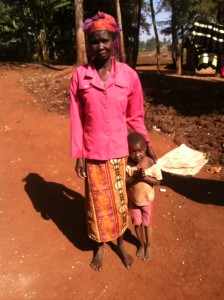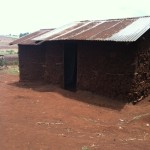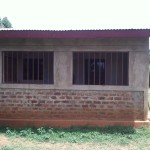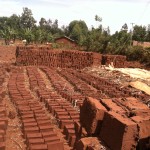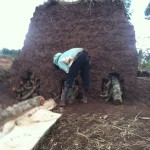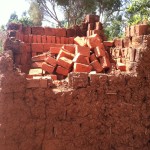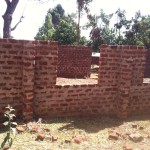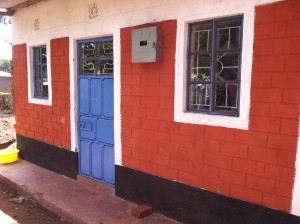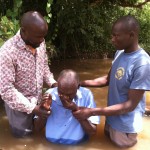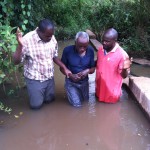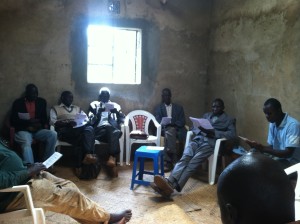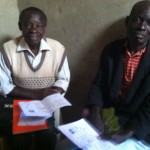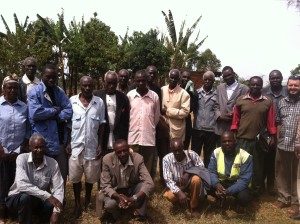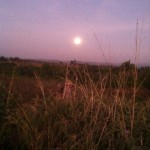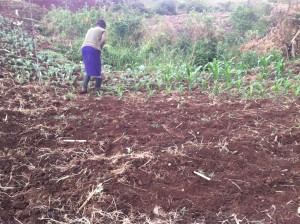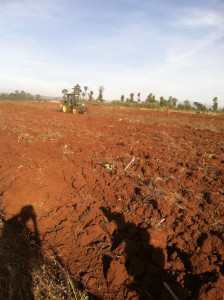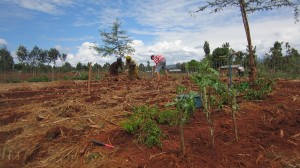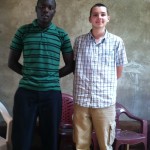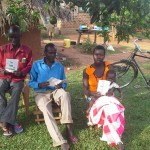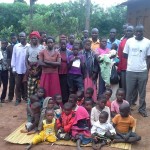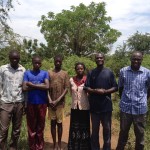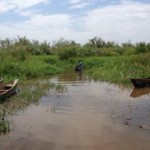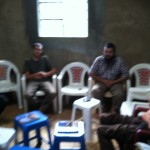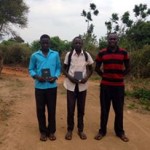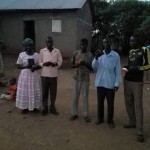Kingdom Driven Ministries’ goal is to minister first, to people’s spiritual needs, and then, to their physical needs. In fact, one can be a gateway to the other. As Jesus went about teaching, he also healed those who were infirm, and he told his disicples to do the same. We do believe in miraculous healing through prayer, but we also know that many here see it as a “miracle” just to have someone help them with the financial burden of visiting a health center. And the motto of our local clinic rings true: “We care and treat; God heals.”
The local government, non-governmental organizations, health institutions, physicians, local discipleship, and KDM donors all play important roles in our medical missions as we serve those in need in our fellowships and our community..
We, of course, recognize the vital role of physicians and modern medicines as well as the traditional and natural medicines. But as KDM’s Marc Carrier has said, “The only reason that God allowed the physicians and medical institutions to exist, is to give every man an equal opportunity to invest in heaven. Both the saints and the physicians are the servants of God.”
Also from the ancient text, the Wisdom of Sirach, declares this truth:
” Honor the physician with the honor due him,
And also according to your need of him.” Sirach 38:1
” The Lord created medicines from the earth,
And a sensible man will not loathe them.” Sirach 38:4
” And keep in touch with your physician ,
For the Lord created him;
And do not let him leave you,
For you need him.
There is a time when success is also in their hands,
For they will pray to the Lord to give them success in
bringing relief and healing, for the sake of preserving your life.” Sirach 38:12-14
Kingdom Driven Ministries is driven by great zeal to alleviate the sorrow and distress of sickness by encouraging healthy living in the villages of East Africa, Kenya, Uganda and Tanzania. To attain these great goals it a must for us to establish a strong pillar of relationship between our ministry, physicians and donors. Our focus is primarily on quality, affordability and moral values. Our approach is:
- Creating strong methodology that will help to educate the community on the values and necessity of healthy living (i.e., HIV education).
- Identifying diverse health care facilities and physicians that are also driven with compassion, quality and morality.
- Designing, testing, and spreading methods to improve healthy conditions and reduce the risk for acute conditions, including preventive care and reducing readmission (such as by encouraging families to use mosquito nets and providing community clean water sources to reduce the spread of water-borne illnesses).
In our mission to improve and boost quality and accessibility of health care, we have been very closely affiliated with a local health center, Solonamu Medical Center, since 2012.
It was founded the same year Kingdom Driven Ministries started its operation in Kenya, 2012. Though it still a small medical center, its dedication and devotion to serving the community and promoting healthy living cannot be understated. In our experience, it has been the most affordable medical center in our area, with a good price for the quality of care and with capable, concerned workers.
Currently their main services include:
- Out- and In-patient care
- Family planning
- Maternity
- Laboratory
- Pharmacy
- Circumcision (Westerners might not see the value of this service. Male circumcision is a tribal practice that many Christians wish to avoid; however, they also do not want to suffer the stigma of not circumcising their sons at the appropriate age. This service is for them.)
- Minor Theater (surgical procedures)
Solanamu Clinic is currently a small-sized facility, with 3 wards, a lab, a pharmacy, 2 consultation rooms, a kitchen, and one office. They are envisioning to expand their facility to be able to meet the growing demands of special treatments, i.e dental and optical services. Currently they have limited health personnel. The staff is made up of three qualified doctors and five dedicated nurses. They provide 24/7 service, which many facilities do not. That has been a blessing to our ministry, as we have addressed many emergency cases in the late hours of the night.
Oftentimes, small-scale facilities such as Solonamu struggle to acquire equipment to provide advanced medical care. Though a relatively new facility, Solona has a microscope for malaria testing, a centrifuge to perform typhoid tests, sterilization equipment, and a suction machine for venom extraction.
In a period of a week’s time, Solonamu will receive at least 5-10 patients from Kingdom Driven Ministries; they keep accounts until at the end of the month, when the ministry will clear the outstanding balance. (This is an unusual arrangement in Africa, where medical care is pay-as-you-go. We are blessed by the cooperation of Solonamu in this regard.) This tiny and efficienct health center serves an average of 20-30 people a day.
This facility has been our a great companion in creating a healthy community, especially dealing with small injuries and minor diseases. In major and chronic cases they will refer us to larger government hospital or private medical facility. By the help of these physicians we have been able to accomplish much good for the community and the people we minister to and serve. They have proof the fact that none can do great things in the world but everyone can do small things with great love.
People of means, or those used to first-world medical care, might enter the doors of Solonamu and reason in their minds, ” What a poor center for the hopeless people!” While on the other hand, the poor and hopeless passing at the gates of Solonamu, reason in their minds, ” What a lovely center! A center of hope for the poor and hopeless.” Indeed, with the resources that they have available, Solonamu is a quality care center in all regards, and we have been blessed to partner with them for the last four years.
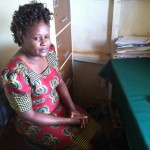 Brigit, a health worker and administrator at Solonamu Medical Center, drive the point home: ” Here at our facility we are driven with a higher and different purpose. It is not about money, it is about service to the community. We give our best of service to both the poor and the wealthy alike without discrimination. We don’t send away the poor who cannot afford to pay their bills. Where will they go? Of course to die and suffer at their homes. Working with Kingdom Driven Ministries has really helped us to learn deeper service and develop compassion for the poor and needy in our community. When we serve the afflicted and the distressed that the saints sent to us, we serve knowing we are serving Jesus Himself.”
Brigit, a health worker and administrator at Solonamu Medical Center, drive the point home: ” Here at our facility we are driven with a higher and different purpose. It is not about money, it is about service to the community. We give our best of service to both the poor and the wealthy alike without discrimination. We don’t send away the poor who cannot afford to pay their bills. Where will they go? Of course to die and suffer at their homes. Working with Kingdom Driven Ministries has really helped us to learn deeper service and develop compassion for the poor and needy in our community. When we serve the afflicted and the distressed that the saints sent to us, we serve knowing we are serving Jesus Himself.”
Many thanks to all of our faithful supporters who pray for the medical needs in our community, and give so generously to make this work possible! We hope you enjoyed this peek into our partner facility, Solonamu Medical Centre.

